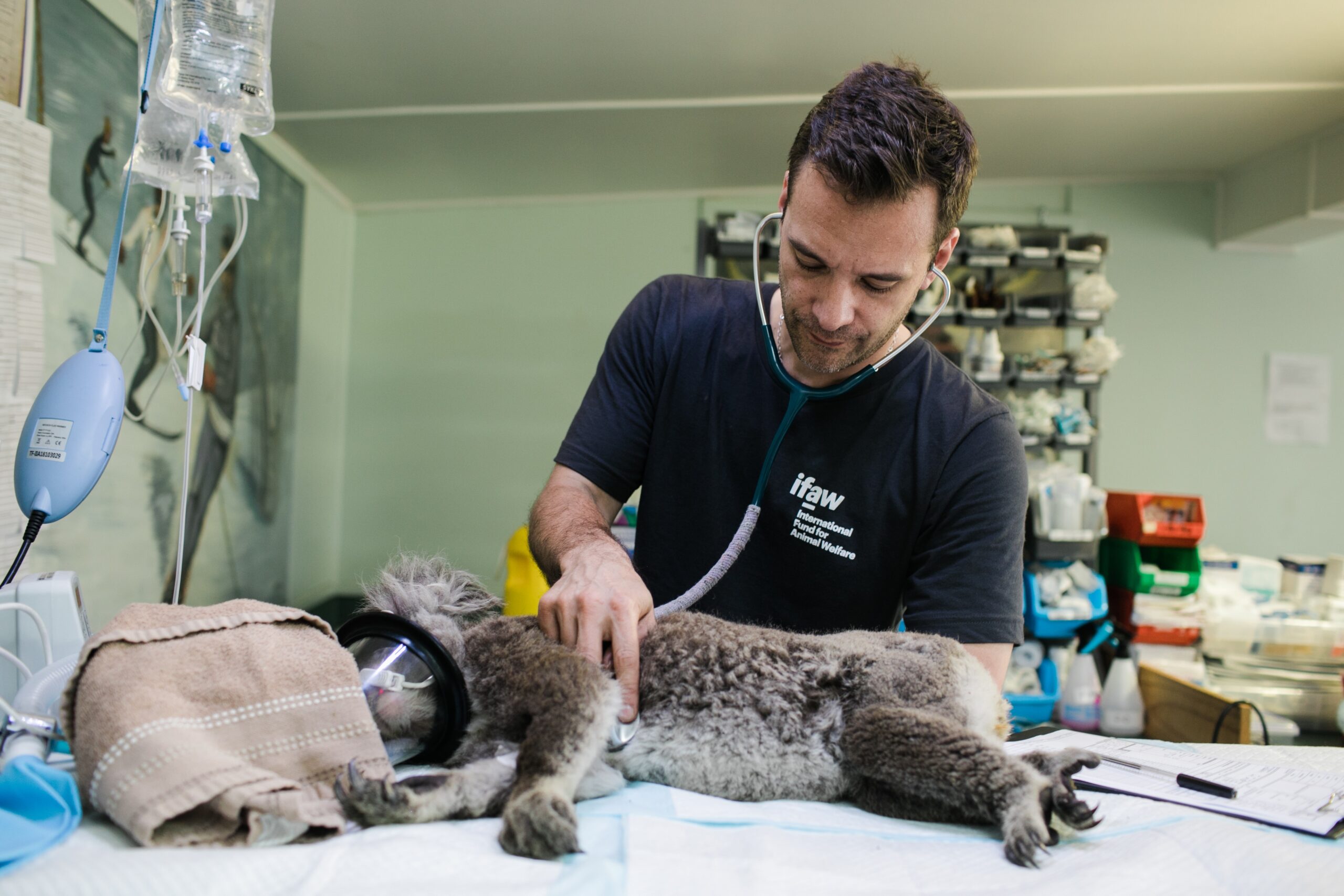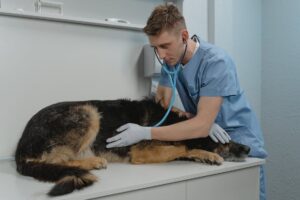Common signs that your pet needs emergency pet care
Here is a list of common signs that indicate an emergency situation and the need for immediate medical treatment, according to the American Veterinary Medical Association (AVMA):
- Difficulty breathing: This can be indicated by rapid breathing, panting, open-mouthed breathing, or cyanosis (bluish tinge to the gums or tongue).
- Trauma: This includes visible injuries, such as cuts, bruises, fractures, or signs of shock, such as pale gums, weakness, and collapse.
- Seizures: This includes sudden and uncontrolled muscle contractions, which can cause loss of consciousness and disorientation.
- Ingestion of toxic substances: This includes signs of poisoning, such as vomiting, diarrhea, drooling, or changes in behavior.
- Loss of consciousness: This includes fainting, unresponsiveness, and coma.
- Persistent vomiting or diarrhea: This can be a sign of severe illness or obstruction and can lead to dehydration and electrolyte imbalances.
- Abdominal pain: This can be indicated by restlessness, whining, crying, or reluctance to move.
- Heatstroke: This can be indicated by panting, rapid heartbeat, vomiting, diarrhea, and disorientation.
- Unexpected bleeding: This includes heavy bleeding from any part of the body, such as the nose, mouth, or rectum.
- Sudden lameness or inability to move: This can be caused by injuries, fractures or other medical conditions.
What is emergency veterinary care?
Emergency veterinary care refers to the immediate medical treatment of animals in crisis situations, such as accidents, injuries, or severe illnesses. These situations require prompt attention and may require specialized equipment, training, and facilities.
According to the American Veterinary Medical Association (AVMA), emergency care is defined as “the provision of immediate medical treatment to an animal suffering from an acute illness or injury, which if left untreated, would result in severe harm or death”.
American Veterinary Medical Association, “Emergency Care”
Common emergency procedures
These include stabilizing and treating traumatic injuries, such as fractures or wounds, as well as providing life support for critically ill animals. Emergency veterinarians may also administer medications, perform diagnostic tests, and provide critical care to stabilize an animal’s condition before transferring them to a specialized facility for further treatment. According to the Journal of the American Veterinary Medical Association (JAVMA), emergency care can encompass a wide range of treatments, including emergency surgery, blood transfusions, and intensive care.
In order to provide emergency veterinary care, facilities must have access to advanced equipment, such as oxygen tanks, defibrillators, and monitoring devices. They must also have trained personnel available 24/7, including veterinary technicians and emergency veterinarians.
According to the American College of Veterinary Emergency and Critical Care (ACVECC), emergency veterinary clinics must have the ability to provide critical care and have the ability to handle a wide range of emergencies.
American College of Veterinary Emergency and Critical Care (ACVECC), “Emergency and Critical Care Services”
Types of emergency veterinary clinics
There are various types of emergency veterinary clinics, including general emergency clinics, referral emergency clinics and specialty emergency clinics. General emergency clinics are able to provide emergency services for a wide range of animals. Referral emergency clinics provide a higher level of care and specialize in the treatment of certain types of animals or specific medical conditions. Specialty emergency clinics provide care for certain species such as avian and exotic pets.
When an emergency occurs, it is important to contact a veterinarian as soon as possible. Many emergency clinics have a 24-hour phone line where an on-call veterinarian can provide guidance on how to handle the emergency. In case of emergency, pet owners are also advised to have a plan in place and to know the location of the nearest emergency veterinary clinic.
In conclusion, emergency veterinary care is essential for the well-being of animals in crisis situations. It requires specialized equipment, training, and facilities, and is typically provided by emergency clinics and mobile services. Pet owners are advised to be aware of the resources available for emergency care and to have a plan in place in case of an emergency. It is important to be aware of common signs that indicate an emergency situation and to seek immediate medical treatment if any of these signs are observed.
References:
- American Veterinary Medical Association, “Emergency Care”
- Journal of the American Veterinary Medical Association (JAVMA), “Emergency and Critical Care”
- American College of Veterinary Emergency and Critical Care (ACVECC), “Emergency and Critical Care Services”
- American College of Veterinary Emergency and Critical Care (ACVECC), “Types of Emergency and Critical Care Facilities”







